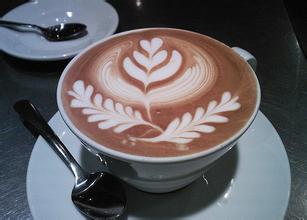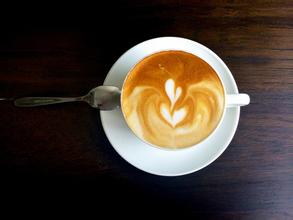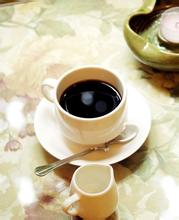Does drinking espresso affect sleep? caffeine
Cappuccinos are divided into dry and wet ones.
The so-called dry cappuccino (dry cappuccino) refers to the conditioning method with more milk bubbles and less milk. it tastes stronger than milk and is suitable for people with heavy taste.
As for wet cappuccino (wet cappuccino), it refers to the practice of fewer milk bubbles and more milk. The smell of milk overshadows the thick smell of coffee, which is suitable for those with light taste.
The flavor of the wet cappuccino is similar to that of the popular latte. Generally speaking, the taste of cappuccino is heavier than latte. If you have a heavy taste, you might as well order cappuccino or dry cappuccino. If you are not used to the heavy smell of coffee, you can order latte or wet cappuccino.
Mocha coffee is probably the most popular coffee variety for girls, because of its strong chocolate and milk flavor. Most people who know a little about coffee will think that it just adds chocolate to the latte.
The researchers recruited five healthy volunteers to participate in the experiment. During the 49-day study, five people took a placebo or a caffeine pill three hours before bed, which contained the same amount of caffeine as two espresso servings. In addition, the volunteers were exposed to low light or strong light for three hours before going to bed.
The researchers regularly tested melatonin levels in the participants. The results showed that taking a caffeine pill in low light delayed the body clock by about 40 minutes compared with placebo in low light. When exposed to sleep-disrupting bright light for 3 hours, the body clock will be delayed by 85 minutes, and if the strong light plus caffeine tablets is added, the body clock will be delayed by 105 minutes.
Kenneth, one of the researchers and director of the Sleep and Bioclock Laboratory at the University of Colorado. Professor Wright said: this is the first study to show the specific effects of caffeine on the body's biological clock, providing a new insight into the effects of caffeine on human physiology.

Important Notice :
前街咖啡 FrontStreet Coffee has moved to new addredd:
FrontStreet Coffee Address: 315,Donghua East Road,GuangZhou
Tel:020 38364473
- Prev

General situation and present situation of Coffee Industry: analysis of the Future Development trend of Coffee Industry
First: coffee production and cultivation will be gradually concentrated. Nowadays, coffee shop franchisees are bustling, and coffee franchisees also provide a lot of convenience for those who like to drink coffee. In recent years, the total output of coffee beans in China has continued to increase, indicating that the planting technology of coffee beans has been significantly improved. With the growth of coffee shop franchisees, the state is encouraging foreign investment in coffee cultivation.
- Next

How much is the Dutch GIESEN roaster W30A
A very valuable feature of the Giesen Coffee Roasters is the presence of two different fans. One is situated inside the drum and will distribute the hot air during the roasting process. The other fan is situated in the cooling tray for the
Related
- What brand of black coffee is the most authentic and delicious? what are the characteristics of the flavor of the authentic Rose Summer Black Coffee?
- Introduction to the principle and characteristics of the correct use of mocha pot A detailed course of mocha pot brewing coffee is described in five steps.
- Which is better, decaf or regular coffee? how is decaf made?
- How much is a bag of four cat coffee?
- How about four Cat Coffee or Nestle Coffee? why is it a cheap scam?
- Which is better, Yunnan four Cats Coffee or Nestle Coffee? How about cat coffee? is it a fake scam? why is it so cheap?
- How about Cat Coffee? what grade is a hoax? which instant coffee tastes better, four Cat Coffee, Nestle Coffee or G7 coffee?
- Process flow chart of coffee making-Starbucks coffee making process what coffee tastes good at Starbucks
- The top ten best coffee beans in the world Rose summer coffee or Tanzanian coffee tastes good
- Yunnan four cat coffee is good to drink?_four cat coffee is a big brand? four cat blue mountain coffee is fake?

